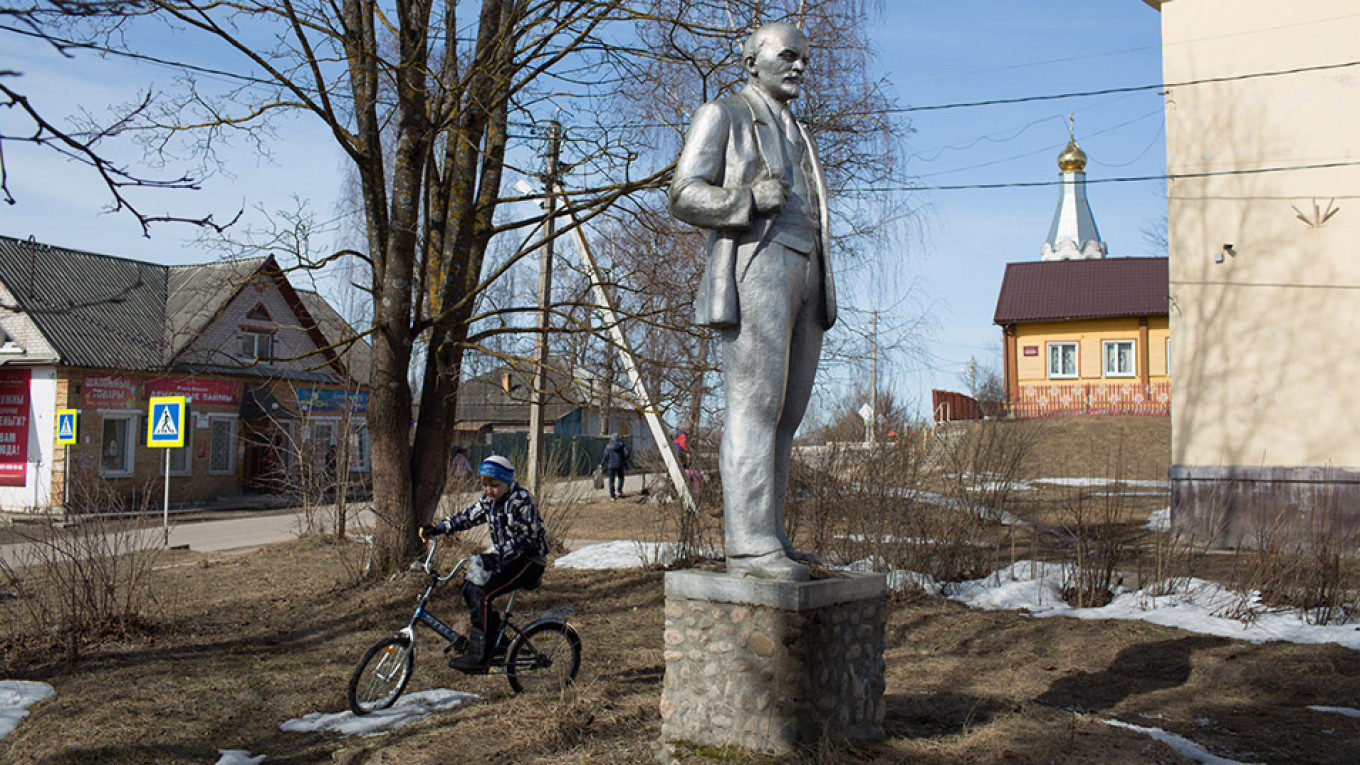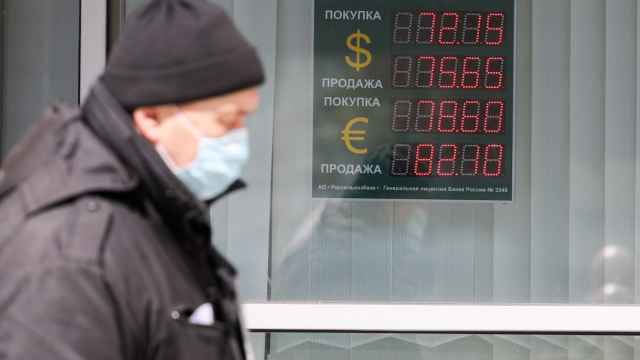Russia is getting a lot of credit on the global financial stage for diverting excess oil revenues into a rainy-day fund to protect the economy from the ups and downs of energy prices. But the policy isn’t winning the Kremlin much popularity from consumers.
The government has managed to save up more than $100 billion under the fiscal rule since it was introduced in February 2017. That’s reduced the country’s vulnerability to oil prices, but it’s also kept money away from ordinary Russians, struggling after half a decade of falling incomes.
Under the rule, the government diverts revenues from oil exports if Brent crude is trading above $40 a barrel and can use the stockpile if the oil price drops below that level. The price of oil, the nation’s main export earner, hasn’t dropped below $40 since the rule was implemented and the ruble has missed out on the kind of surge it saw in 2016 when oil prices rallied.
“There is an asymmetry built into the fiscal rule,” said Alex Isakov, an economist at VTB Capital in Moscow. “While purchases of FX are essentially unlimited, sales are limited to the amount of hard currency previously accumulated.”
The International Monetary Fund and major credit ratings agencies have heaped praise on the policy for limiting Russia’s vulnerability to the kind of oil price shock that sank the ruble four years ago. But some economists argue that the rule takes more from consumers than it gives back because it keeps the ruble artificially weak when times are good, while only offering limited protection when times are bad.
A weaker ruble benefits Russia’s export sector but hurts consumers by pushing up the price of imported goods, including food.
Central bank Governor Elvira Nabiullina argued last year that the money redirected to the wealth fund would have otherwise been purchased by banks and used by companies to pay down debts or keep on accounts abroad. She has publicly opposed a Finance Ministry proposal to spend some of the saved up money on infrastructure projects, because that could risk pushing up inflation.
The federal budget ran the widest surplus in a decade last year, but consumers are increasingly being forced to tap savings and amass credit card debt to tie them over. Incomes adjusted for inflation are expected to fall for a sixth year in 2019.
The ruble has weakened about 5% since the policy was introduced, even as the price of Brent crude increased 17%. Bloomberg economist Scott Johnson estimates it may have averted almost 10% of appreciation, leaving households poorer in the near term.
“The state keeps the ruble intentionally weak with the help of the budget rule,” said Kirill Tremasov, a former Economy Ministry official who’s now an analyst at Loko-Invest in Moscow. “It would make more sense to use a policy like this in a wealthier country.”
A Message from The Moscow Times:
Dear readers,
We are facing unprecedented challenges. Russia's Prosecutor General's Office has designated The Moscow Times as an "undesirable" organization, criminalizing our work and putting our staff at risk of prosecution. This follows our earlier unjust labeling as a "foreign agent."
These actions are direct attempts to silence independent journalism in Russia. The authorities claim our work "discredits the decisions of the Russian leadership." We see things differently: we strive to provide accurate, unbiased reporting on Russia.
We, the journalists of The Moscow Times, refuse to be silenced. But to continue our work, we need your help.
Your support, no matter how small, makes a world of difference. If you can, please support us monthly starting from just $2. It's quick to set up, and every contribution makes a significant impact.
By supporting The Moscow Times, you're defending open, independent journalism in the face of repression. Thank you for standing with us.
Remind me later.






